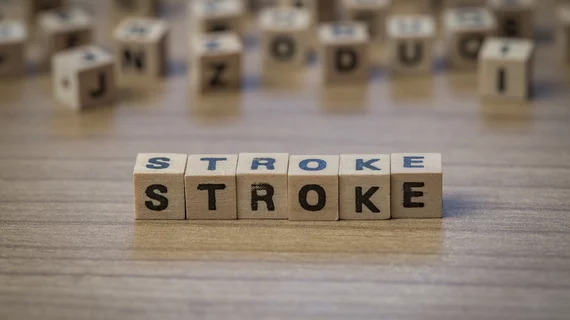PTSD may increase risk of TIA, stroke
Young adults who suffer from post-traumatic stress disorder (PTSD) may be more likely to suffer a transient ischemic attack (TIA) or major stroke event by middle age, according to a study published online in Stroke on Oct. 17.
The study involved an analysis of medical data from more than 1.1 million young and middle-aged veterans enrolled in healthcare services provided by the Veterans Health Administration. Most of these patients were males aged 18 to 60, with an average age of 30. The majority of study subjects (66%) were Caucasian males. All patients had served in recent conflicts in Iraq and Afghanistan, and none had previously experienced a TIA or stroke.
Of patients in the group, 766 individuals were found to have suffered a TIA during a 13-year follow-up period, while 1,877 had suffered an ischemic stroke. A total of 29% of these subjects had been diagnosed with PTSD. The presence of PTSD rendered patients twice as likely to have a TIA, the researchers discovered, raising the risk of such an occurrence more than established risk factors like diabetes and sleep apnea.
Among other study findings, veterans with PTSD were deemed to be 62% more likely to experience a stroke than those who do not have PTSD. The researchers reported that the condition raises the risk of stroke to a greater degree than established lifestyle factors, including obesity and smoking. Additionally, even after adjustments for multiple stroke risk factors, as well as for drug and alcohol abuse and co-existing psychiatric disorders such as depression and anxiety, veterans who had been diagnosed with PTSD were 61% more likely to have a TIA and 36% more likely to have a stroke than veterans without PTSD.
Lead study author Lindsey Rosman, PhD, of the University of North Carolina School of Medicine in Chapel Hill, N.C. and colleagues wrote that while the research reveals a strong correlation between PTSD and early TIA and stroke, it was not intended to prove that PTSD causes either condition. They also noted that because the study subjects were younger veterans, the results “may not be generalizable to non-veterans or older adults who may exhibit more conventional stroke risk factors” like atrial fibrillation and heart failure.
Nonetheless, “Clinicians should be aware that mental health conditions such as PTSD are increasingly prevalent among young people and may have major implications for their risk of stroke,” Rosman said in a prepared statement, noting that 10 to 14% of ischemic strokes occur in adults ages 18 to 45. The study findings, she added, “raise important questions about whether early recognition and successful treatment of PTSD can prevent or decrease the likelihood of developing a stroke in those exposed to violence, trauma, and severe adversity.”
